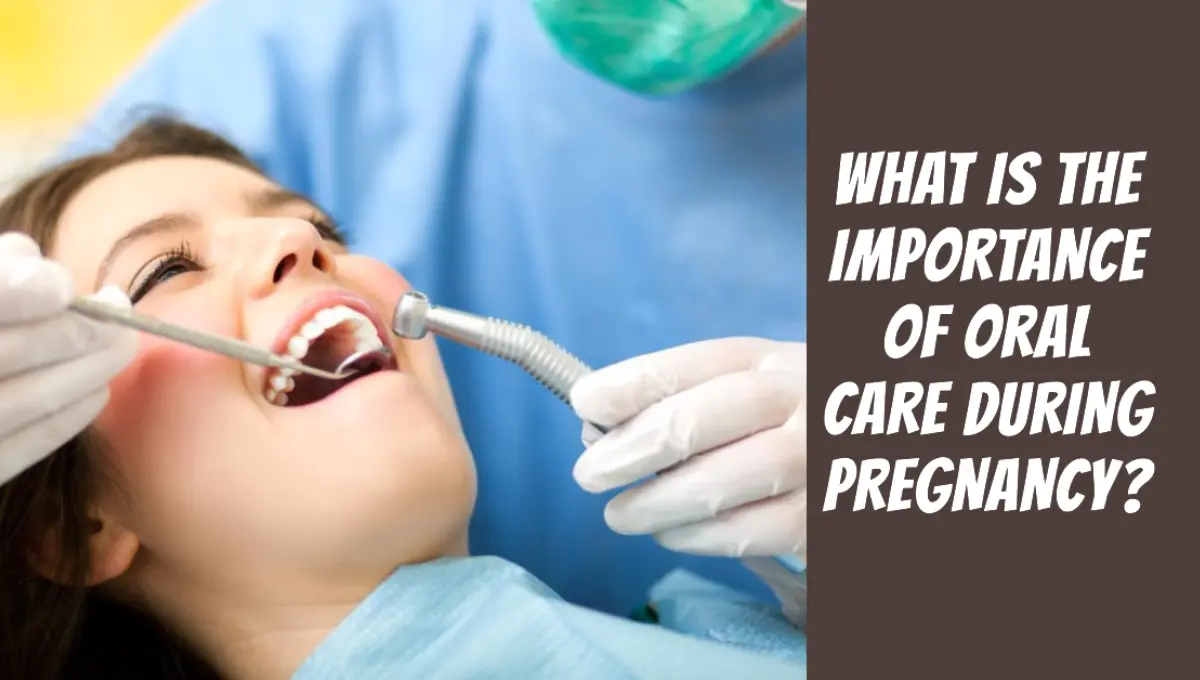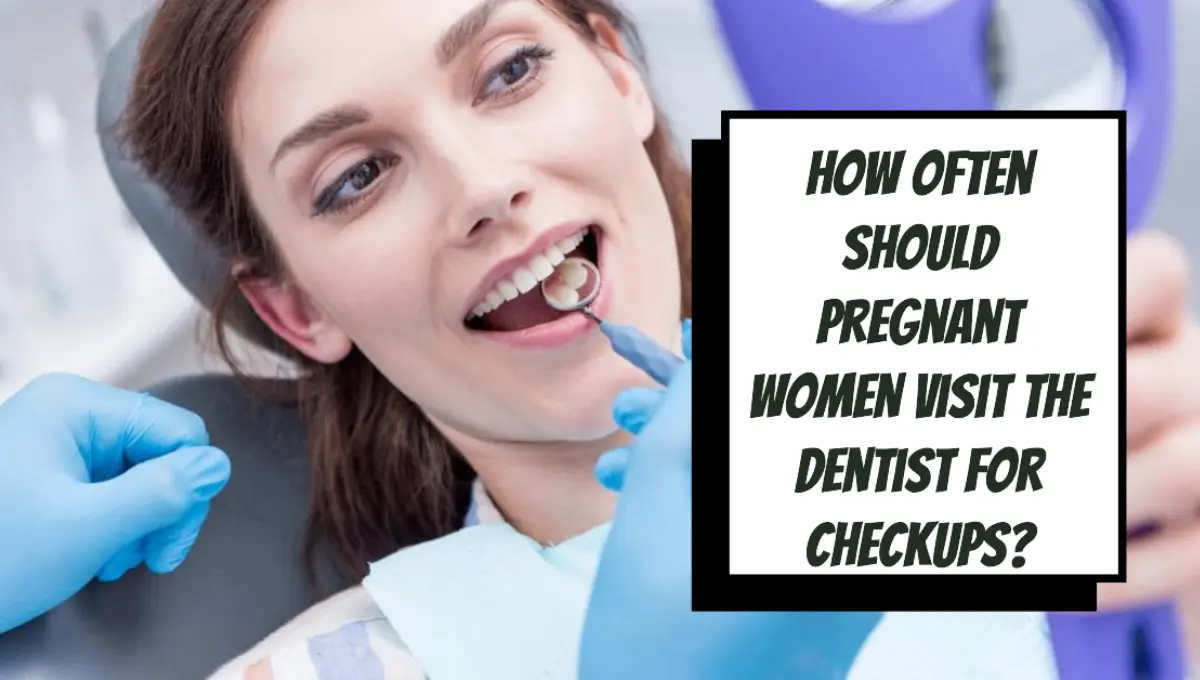
Congratulations, mama-to-be! You’re on an incredible journey filled with excitement, anticipation, and maybe a few sleepless nights. Amid all the preparations and baby bump selfies, it’s easy to overlook an essential aspect of your well-being during pregnancy: your oral health. Trust me; it’s not just about having a dazzling pregnancy smile, though that’s a great bonus! Taking care of your teeth and gums can significantly impact your overall health and, ultimately, your baby’s well-being. In this article on PregnancyBoss, we will discuss the importance of healthy pregnancy oral care and provide 20 tips for maintaining good oral hygiene during pregnancy.
Related: Benefits of Chiropractic Care During Pregnancy
What is the Importance of Oral Care During Pregnancy?

Hormonal Changes and Oral Health
Pregnancy hormones, such as estrogen and progesterone, can affect the gums, making them more susceptible to inflammation and bleeding. These hormonal shifts can also alter the body’s response to bacteria, increasing the risk of gum disease and cavities.
Gum Disease and Pregnancy
Gum disease (periodontal disease) is a common oral health issue during pregnancy. It can cause symptoms like gum inflammation, bleeding, and even tooth mobility. It’s essential to address gum disease promptly to prevent complications.
Pregnancy Gingivitis
Pregnancy gingivitis is a mild form of gum disease that occurs during pregnancy. It is characterized by swollen, tender gums and bleeding while brushing or flossing. Proper oral hygiene practices can help manage and prevent this condition.
Pregnancy Tumors
Pregnancy tumors, also known as pyogenic granulomas, are non-cancerous growths that can develop on the gums during pregnancy. While typically not harmful, they can be uncomfortable. Dentists can evaluate and recommend treatment if necessary.
Related:The Pros and Cons of Water Birth: Is It Right for You?
What are the Risks of Poor Oral Health During Pregnancy?

Preterm Birth
Poor oral health has been linked to preterm birth, where the baby is born before 37 weeks of gestation. Bacteria from gum disease can enter the bloodstream and potentially trigger premature labor.
Low Birth Weight
Babies born to mothers with untreated gum disease may be at risk of low birth weight, which can lead to health complications for the baby. Adequate oral care can mitigate this risk.
Gestational Diabetes
Some studies suggest a connection between gum disease and gestational diabetes, a condition that develops during pregnancy. Managing oral health may help reduce the risk of gestational diabetes.
Preeclampsia
While the exact relationship is not fully understood, poor oral health may be associated with an increased risk of developing preeclampsia, a serious pregnancy complication characterized by high blood pressure and organ damage.
Related:The Benefits of Hypnobirthing
What are the 20 Tips for a Healthy Pregnancy Oral Care?
So, let’s dive into 20 tips for a healthy pregnancy oral care routine that will make you and your little one beam with happiness.
1. Start Early, Stay Strong
The saying “prevention is better than cure” holds true here. Begin focusing on your oral health even before you become pregnant. A healthy mouth and gums can reduce the risk of complications during pregnancy. It’s like giving your teeth a head start for the marathon of motherhood.
2. Brush Twice a Day, the Pearly Way
Brushing your teeth is your daily defense against plaque buildup. Use a soft-bristle toothbrush and fluoride toothpaste. Don’t rush the process; spend at least two minutes brushing, reaching all surfaces of your teeth. Your bathroom mirror will soon become your favorite stage for a solo dental dance!
3. Floss Like a Boss
Flossing is the unsung hero of oral care. It reaches the tight spaces between teeth, where food particles like to hide. Make it a daily habit, and your gums will thank you with good health.
4. Choose a Pregnancy-Safe Toothpaste
During pregnancy, some toothpaste ingredients may be too harsh. Consult your dentist to find a fluoride toothpaste that’s pregnancy-friendly. It’s like finding a comfy pair of shoes for your mouth!
5. Regular Dental Check-Ups
Before your baby bump becomes a prominent feature, schedule a dental check-up. Your dentist will identify and address any existing dental issues, ensuring a smooth pregnancy journey.
6. Tell Your Dentist You’re Pregnant
Always inform your dentist about your pregnancy. They can tailor treatments and procedures accordingly, keeping both you and your baby safe. Communication is key!
7. Morning Sickness SOS
Morning sickness might be a common pregnancy woe, but it can harm your tooth enamel due to stomach acid exposure. Rinse your mouth with a baking soda solution (1 teaspoon in a glass of water) after vomiting. This neutralizes acids and protects your teeth.
8. Sugar, Be Gone!
Pregnancy cravings can lead you to sugary snacks, but remember, sugar is the villain in this story. Too much sugar can increase the risk of tooth decay. Opt for healthier snacks like carrot sticks or cheese cubes to satisfy those cravings.
9. Snack Smart
Speaking of snacks, choose wisely. Veggies, cheese, and yogurt are not only nutritious for you and your baby but also gentle on your teeth. Munch away guilt-free!
10. Stay Hydrated
Pregnancy can make you feel like a water balloon, but staying hydrated is essential for your oral health. Water helps maintain saliva production, which is your mouth’s natural defense mechanism against bacteria.
11. Chew Xylitol Gum
Xylitol gum can be your secret weapon against tooth decay. Chewing it can reduce harmful bacteria in your mouth. Just remember, moderation is key!
12. Say No to Tobacco
If you’re a smoker or use tobacco products, it’s time to kick the habit. Smoking during pregnancy can harm your baby and increase your risk of gum disease. It’s a win-win for both you and your oral health!
13. Avoid Alcohol
Alcohol is a strict no-no during pregnancy. Not only can it harm your developing baby, but it can also increase your risk of gum disease. So, toast with a glass of water instead!
14. Manage Pregnancy Gingivitis
Pregnancy gingivitis is a common occurrence due to hormonal changes. If you notice bleeding when brushing or flossing, don’t panic. It’s important to maintain good oral care habits to keep it in check.
15. Mind Your Meds
Always consult your healthcare provider before taking any medication, even over-the-counter ones. Some medications might have adverse effects on your oral health, so it’s better to be safe than sorry.
16. Stay Relaxed
Pregnancy can be stressful, but high stress levels can lead to oral health issues like gum disease. Practice relaxation techniques like meditation or gentle yoga to keep stress at bay.
17. Say Cheese!
Make sure you’re getting enough calcium in your diet. Calcium is crucial for your baby’s developing teeth and bones. Dairy products and calcium supplements can help meet your daily requirements.
18. Mind Your Iron
Iron supplements are often prescribed during pregnancy, but they can sometimes cause mouth discomfort. Discuss with your healthcare provider for suitable alternatives if needed.
19. Postpartum Care
After the big day arrives and you’ve welcomed your bundle of joy, don’t forget about your own health. Schedule a dental check-up to address any pregnancy-related dental issues you may have encountered.
20. Share the Love
As your child grows, teach them the importance of oral care. Lead by example and make oral hygiene a fun and shared activity. Your child’s dental health will thank you later!
Related:Top 15 Must-Have Baby Products for New Moms
How Often Should Pregnant Women Visit the Dentist for Checkups?

According to the American College of Obstetricians and Gynecologists, pregnant women should have a dental examination if it has been more than 6 months since their last examination or if they have any oral health problems. Regular dental checkups are important to ensure the health of both the mother and the baby. Routine dental care can be done any time during pregnancy, and any urgent procedure can be done as well. However, elective dental procedures should be postponed until after delivery.
Related:The Ultimate Guide to Choosing the Right Hospital for Your Delivery
Conclusion
So there you have it, 20 tips for a healthy pregnancy oral care routine that will make your smile radiant and keep you and your baby feeling your best. Remember, a happy, healthy mom leads to a happy, healthy baby. Now, go out there and embrace this amazing chapter of your life with a smile that lights up the room! 😁👶🦷
Frequently Asked Questions (FAQs)
How does pregnancy affect oral health?
Pregnancy hormones can make women more prone to gum disease, gingivitis, and periodontal disease. Nearly 60 to 75% of pregnant women have gingivitis, an early stage of periodontal disease that occurs when the gums become red and swollen from inflammation that may be aggravated by changing hormones during pregnancy.
What are some common dental problems that pregnant women may experience?
Pregnant women may experience gum disease, gingivitis, periodontal disease, tooth decay, cavities, pregnancy tumors, loose teeth, mouth dryness, and dental erosions.
How often should pregnant women visit the dentist for checkups?
Pregnant women should have a dental examination if it has been more than 6 months since their last examination or if they have any oral health problems. Regular dental checkups are important to ensure the health of both the mother and the baby.
Is it safe to visit the dentist during pregnancy?
Yes, it is safe to visit the dentist during pregnancy. Routine dental care can be done any time during pregnancy, and any urgent procedure can be done as well. However, elective dental procedures should be postponed until after delivery.
How can pregnant women maintain good oral hygiene?
Pregnant women can maintain good oral hygiene by brushing and flossing regularly, using fluoride toothpaste, using an antimicrobial mouth rinse, eating a healthy diet, avoiding sugary foods and drinks, drinking plenty of water, chewing sugarless gum, having regular dental checkups, informing their dentist about their pregnancy, avoiding dental procedures during the first trimester, and dealing with morning sickness, dry mouth, and tooth sensitivity.












